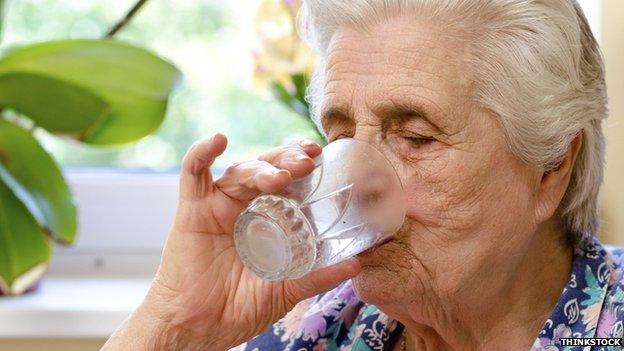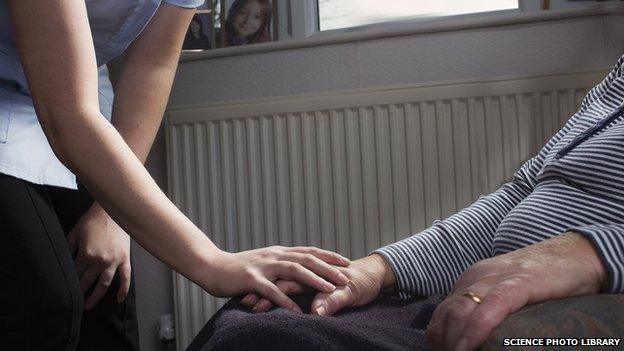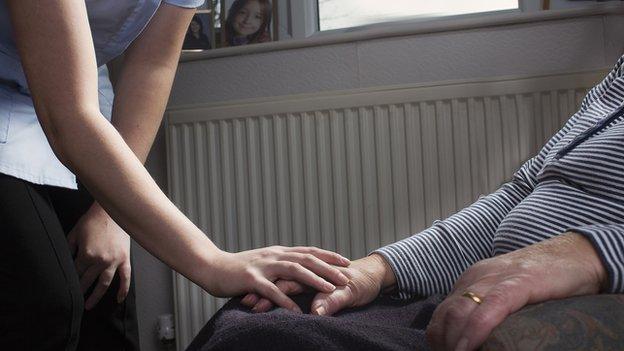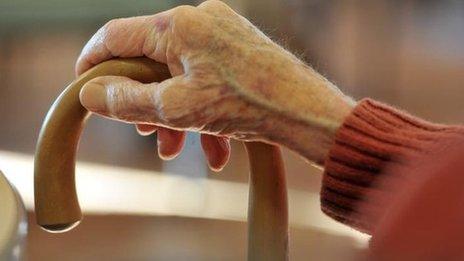Dehydration an issue for elderly people, says research
- Published

One in five older people living in care homes does not drink enough fluid, research suggests.
Figures presented at a Royal Society of Medicine (RSM) conference showed those with dementia were six times more likely to be dehydrated.
A quarter of those living in their homes without a carer did not get enough to drink.
Ministers said the government was making it easier to prosecute homes that failed to look after residents.
Dr Lee Hooper, from Norwich Medical School, University of East Anglia (UEA), told the conference that figures collected through her work in 57 care homes and 239 people in the community showed the risk of dehydration was higher in people taking more medications.
A 2013 analysis of death certificates by the Office for National Statistics had shown that 1,158 care home residents suffered dehydration-related deaths between 2003 and 2012.
But Dr Hooper said those figures were not clear-cut as patients often stopped eating or drinking towards the end of life.
Forgetfulness
She also stressed that while care homes could sometimes do better, it was important to point out that identifying dehydration and solving its causes was complex.
"The reasons older people do not drink enough are that as we age we lose our sense of thirst so they may not be thirsty.
"[Or they] decide not to drink because of continence issues, because they don't have as much social contact or because of frailty or forgetfulness."
She said that worries about toilet issues and continence were often overlooked but could "loom very large" for some older people and caused a lot of anxiety.
Damaging health
Being dehydrated could cause confusion as well as an increased risk of heart disease, infection and falls and research had shown that the level of anxiety among residents in a care home could fall enormously if they are getting enough fluid.

But routine tests done to spot signs of dehydration in the elderly, such as pinching the skin on the back of the hand, were not accurate, Dr Hooper told the conference.
"We have developed a set of three tests which we are trialling in care home residents at the moment," she said.
The UEA study, funded by the National Institute for Health Research, is also investigating strategies for preventing dehydration in the elderly.
Caroline Abrahams, charity director at Age UK, said many cases of dehydration were entirely avoidable with the right care and support.
"Both hospitals and care homes must get better at picking up on the warning signs of dehydration and at ensuring that while older people are in their care they get all the help they need to eat and drink."
Care and Support Minister Norman Lamb said any failings of care that contributed to people being dehydrated were unacceptable.
"The law on this is very clear - care homes must make sure residents get enough to eat and drink and we are making it easier to prosecute homes that fail to do so."
- Published1 December 2014

- Published27 November 2014
